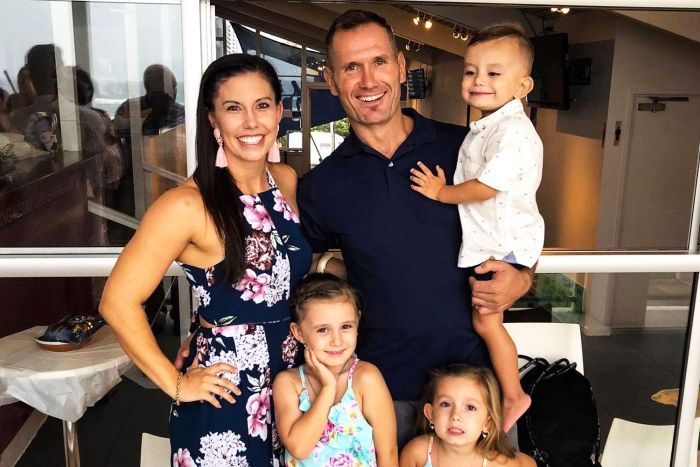Campaigners say the Morrison Government has dropped the ball on domestic violence and should unite all state and territory policies under one national umbrella to stop tragedies like the Hannah Clarke murder.
The killing of Ms Clarke and her children by estranged husband Rowan Baxter this week horrified the country.
The family were doused in an accelerant then set on fire by Baxter in Camp Hill, Brisbane, yesterday bringing the total deaths of women killed in domestic violence incidents in Australia to eight this year.
The brutality of the deaths raised alarm among the Australian public and non-profit organisations, while activists are calling for the federal and state governments to start taking real action when it comes to fighting domestic violence and unify fragmented policies.
Sue McLeod from Destroy the Joint, a domestic violence advocacy service, said the government needs to do much more.
“The Federal Government needs to make an umbrella organisation or policy to bring everything together in all states for women so they know what to do,” she said.
Criminal law is different in every state and territory in Australia and campaigners say it leaves women feeling confused and helpless. The federal government funds different organisations and bodies but otherwise takes a backseat role on the issue.
CEO from Gender Equity Australia Tanja Kovac told Hatch: “There is a fundamental issue in the way the Federal Government is funding prevention of family violence incidents. In general state and federal governments need to spend way more money on prevention than they currently do.”
Today police are starting to piece together the dynamics of Ms Clarke’s and Baxter’s relationship, with the ABC reporting she told a friend the marriage was abusive and controlling and she felt ‘relieved’ when they finally separated.
“Responding after a tragedy, when there is a burnt, charred mother and three children is an insufficient response to this crisis. It is what we do to intervene and stop it all together that counts,” Ms Kovac added.
“When men die at work and on our roads there is funding and insurance schemes to prevent loss and damage. There is not the same level of investment when women die in the street and in their homes.
“Historical gendered bias is impacting on good policy solutions.”
Our Watch, an organisation and support group to help women and children who are abused, receives $7 million a year in funding, while Safe Work Australia an organisation that supports safety in the workforce, used mainly by men, receives $20 million.
Concerned domestic violence advocates are worried women who need to leave their abuser don’t know what to do, where to go or what their legal rights are.
“Women need somewhere to go as the abuser in these types of relationships is normally very controlling… they control the money, what she does… who she sees,” Ms McLeod told Hatch.
The most dangerous time for a women is when she is leaving her abuser.
“There are aboriginal women Australia-wide who are getting beaten up and have nowhere to go,” Ms McLeod said.
Organisations are worried news of the Clarke family murders will be in the headlines for a week or two and then everything will be forgotten.
“The organisations that women need to help them escape domestic violence are found at the grassroots offering practical help… governments need to make policy and provide appropriate funding for them to operate effectively,” Ms McLeod added.
According to Women’s Health East, based in Victoria, one in four women has experienced violence by an intimate partner, one in five women has experienced sexual violence and one in two women has experienced sexual harassment in her lifetime.
A day after the murder of Ms Clarke it’s business as usual in Australia, with a man taken into custody for firing a gun near his partner in an argument and another man charged for the alleged murder of his then 27-year-old partner in Lithgow nearly eight years ago.


